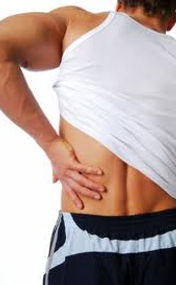cimarron Acupuncture
Holly Mitchell LAc, CMT
Call 303.888.1188
Acupuncture

Acupuncture is a traditional Chinese medicine (TCM) practice that involves inserting thin, sterile needles into specific points on the body, known as acupoints, to balance the flow of energy (Qi) and promote healing. It is based on the concept of meridians, pathways through which Qi flows, and aims to restore harmony between yin and yang forces in the body. Acupuncture is often used to treat pain, stress, and a variety of health conditions, and is now widely integrated into Western complementary and alternative medicine.
How It Works: Needles stimulate acupoints, which may influence the nervous system, release endorphins, improve blood flow, and reduce inflammation. Other techniques like moxibustion (burning herbs near the skin) or electroacupuncture (mild electrical stimulation) may be used.
Session Details: Sessions typically last 30–60 minutes, with 5–30 needles inserted, depending on the condition. Patients may feel a mild tingling or warmth but usually minimal pain.

Benefits of Acupuncture
Acupuncture is recognized for its potential to address a wide range of physical and mental health conditions. Benefits include:
-
Pain Relief: Effective for chronic pain (e.g., back pain, neck pain, osteoarthritis, migraines). A 2012 meta-analysis in Archives of Internal Medicine found acupuncture significantly reduced chronic pain compared to sham treatments or no treatment.
-
Stress and Anxiety Reduction: Stimulates the release of endorphins and may regulate the nervous system, reducing stress, anxiety, and depression symptoms. Studies show it can lower cortisol levels.
-
Improved Sleep: Often used for insomnia, with research indicating better sleep quality and duration.
-
Digestive Health: May alleviate symptoms of irritable bowel syndrome (IBS), nausea (e.g., from chemotherapy), and digestive discomfort.
-
Women’s Health: Helps with menstrual pain, menopausal symptoms, and fertility issues. Some studies suggest it improves IVF success rates.
-
Immune Support: May enhance immune function by reducing inflammation and supporting overall wellness.
-
Other Conditions: Used for allergies, fibromyalgia, addiction recovery, and post-surgical recovery.
Successes and Evidence
-
Chronic Pain: A 2018 review in The Journal of Pain confirmed acupuncture’s efficacy for chronic pain, with effects lasting up to a year after treatment.
-
Migraines: A 2016 Cochrane review found acupuncture reduced migraine frequency more effectively than no treatment and was comparable to preventive drugs.
-
Nausea: The National Institutes of Health (NIH) endorses acupuncture for chemotherapy-induced nausea and postoperative nausea.
-
Mental Health: A 2013 study in Journal of Alternative and Complementary Medicine showed acupuncture reduced depression symptoms in some patients.
-
Fertility: A 2017 study in Fertility and Sterility suggested acupuncture may improve pregnancy rates in women undergoing IVF.
Types of People Who Utilize Acupuncture
Acupuncture attracts a diverse range of individuals, including:
-
Chronic Pain Sufferers: People with back pain, arthritis, migraines, or fibromyalgia seeking non- pharmacological relief.
-
Those Seeking Holistic Care: Individuals interested in natural or integrative medicine, often combining acupuncture with massage, yoga, or herbal remedies.
-
Mental Health Patients: Those with anxiety, depression, or stress-related disorders looking for complementary therapies.
-
Women’s Health Focus: Women with menstrual issues, menopausal symptoms, or fertility challenges.
-
Athletes: For injury recovery, pain management, and performance enhancement.
-
Cancer Patients: To manage treatment side effects like nausea, fatigue, or pain.
-
Older Adults: For age-related conditions like arthritis or insomnia.
-
Professionals and Stressed Individuals: High-stress workers seeking relaxation and mental clarity.
“It is far more important to know what person the disease has than what disease the person has.”
-Hippocrates
Chinese Herbal Medicine
Chinese Herbal Medicine is based on thousands of years of research and clinical experience and is the main treatment method of Traditional Oriental Medicine (TOM). Chinese herbal medicine draws from a vast pharmacopoeia of over 5,000 herbs, minerals, and animal products include vegetable, animal and mineral ingredients, but the majority are from vegetable sources such as leaves, flowers, twigs, stems, roots, tubers, rhizomes and bark.. These substances are combined into formulas anywhere from 6-18 herbs that are used to treat specific ailments. The formulas consist of very specific combinations of these substances, each having a unique purpose within the formula. They are dispensed as powders or pills, or in a raw form that is brewed into a tea. This form of herbal medicine is so effective because it takes into account the condition being treated, as well as the constitution of the individual, creating the most effective formula for each person. Therefore, three patients being treated for the same illness could potentially get three very different herbal formulas as part of their treatment.
